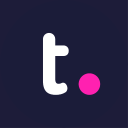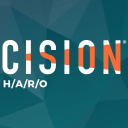I Started A $2M/Year Digital Marketing Agency That Focuses On Women Owned Companies
Hello! Who are you and what business did you start?
Greg Shuey, founder of Stryde, an eCommerce digital marketing agency. Stryde works with women-owned eCommerce companies and eCommerce businesses that sell products primarily to women some of the brands we work with include Ergobaby, Crane, Lands End and others. We specialize in creating custom digital marketing strategies that focus on search engine optimization (SEO), paid search (PPC), paid social (Facebook, Instagram, YouTube, Tiktok ads), email marketing, and conversion rate optimization (CRO).
We’ve been in business for almost 9 years now and we’re hovering just over $2 Million in revenue. Our growth strategy has always been focused on bringing on the right clients vs volume of clients so we can service them with the utmost care and have the highest probability of seeing success.

Download the report and join our email newsletter packed with business ideas and money-making opportunities, backed by real-life case studies.

Download the report and join our email newsletter packed with business ideas and money-making opportunities, backed by real-life case studies.

Download the report and join our email newsletter packed with business ideas and money-making opportunities, backed by real-life case studies.

Download the report and join our email newsletter packed with business ideas and money-making opportunities, backed by real-life case studies.

Download the report and join our email newsletter packed with business ideas and money-making opportunities, backed by real-life case studies.

Download the report and join our email newsletter packed with business ideas and money-making opportunities, backed by real-life case studies.

Download the report and join our email newsletter packed with business ideas and money-making opportunities, backed by real-life case studies.

Download the report and join our email newsletter packed with business ideas and money-making opportunities, backed by real-life case studies.




















